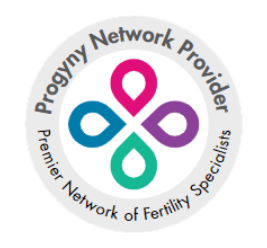Egg freezing is the ultimate fertility investment for women who are interested in preserving their future fertility. The process was pioneered by fertility specialists who wanted to help cancer survivors at risk for infertility as a result of their cancer diagnoses or the required method of treatment. Certain types of cancer, and several forms of chemotherapy can destroy eggs, which seriously jeopardizes or eliminates a woman’s chances of getting pregnant.
Are You a Candidate for Egg Freezing?
Of course, once egg freezing (now called egg vitrification as a result of changes in the “freezing” process) became a viable fertility treatment, it opened the door for other women worried about fertility.
Currently, egg vitrification is used most often as a treatment for:
- Women with cancer. Fertility preservation used most often to help women with cancer whose fertility chances are at risk. If you have cancer, check out LiveSTRONG Fertility. Our partnership with LiveSTRONG can provide grants to offset the costs of fertility preservation. Contact Us to learn more. (916) 773-2229
- Career women. As you are probably aware, maternal age and fertility rates are intrinsically linked. After age 35, a woman’s egg stores begin to dwindle rapidly and, unfortunately, the quality of her eggs diminishes as well. By the time you hit 40, fertility rates plummet. For this reason, women on the career path, who fear they’ll have fertility issues when they’re ready to start a family, are also candidates.
- 35 and still single. Plenty of women are waiting well into their 30s before tying the knot and that puts them in the infamous “ticking biological clock” bracket. For women in their mid-late 30s, this can be a bit scary. As a result, we’re seeing an increase of single-but-approaching-late-30s women who are interested in freezing their eggs.
Also, if you have a family history of early/premature menopause (menopause that occurs before the age of 40), egg freezing is a viable option as well. While premature menopause can be caused by medical or environmental reasons, genetics seems to be the most common “natural” factor. If a female member of your family experienced premature menopause, it may be worth testing for egg quantity using a combination of an Anti-Mullerian Hormone Test (AMH), which can be ordered by your general or OB/GYN, and an antral follicle count, which is typically done by a fertility specialist. The results of these two tests can give you a good idea of how many eggs you have left.
When’s the Best Time to Freeze My Eggs?
Age matters when it comes to egg freezing. If you have a cancer diagnosis, egg retrieval can occur anytime between 13- and 40-years of age. Otherwise, we say:
- <32: Don’t worry about it. Unless there’s a pre-existing medical condition you’re aware of, you probably have plenty of eggs left and the process isn’t worth the time, energy and money involved. Just wait and see how life unfolds.
- 32-36: This is the ideal window.
- 37-38: The clock is ticking, so make up your mind sooner rather than later.
- 38-40: It might be too late. Review statistics before proceeding.
- 41 or older: It’s probably too late, so it’s better to consult with a fertility specialist to discuss fertility treatment options.
As far as success rates go; the success rates for a live birth using frozen eggs and IVF are:
- <38: you have an 80% chance of a live birth per 20 retrieved eggs.
- 38-40: you have a 70% chance of a live birth per 30 retrieved eggs.
What Happens During the Egg Freezing Process?
Egg freezing is fairly straightforward. Once your egg stores have been evaluated via AMH and antral follicle count, the fertility specialist will let you know if you have a sufficient number of eggs. From start to finish, the entire process takes just a couple of weeks. During that time, you’ll have four or five ultra-sound visits at the fertility treatment center (about 30-minutes each), after which you can return to work.
You will also use injectable fertility meds in order to retrieve (we hope) 20 eggs or more. Read, The IVF Process Explained, to learn more about ovulation induction as well as the IVF process, which would be your pregnancy route once you’re ready to thaw the eggs.
Egg retrieval takes about 15-minutes, but because we use IV sedation (so you don’t feel anything), you need to take the rest of the day off . Once the eggs have been retrieved, they are vitrified, and stored until you’re ready to use them.
Are you a candidate for egg freezing? Would you like to learn more about the process and what it would mean for you? Please call us here at Northern California Fertility Medical Center and we’ll be happy to forward you more information or schedule a consultation.





